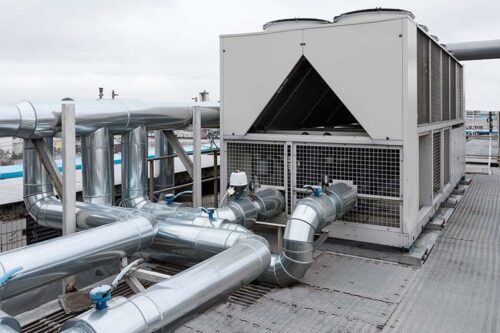Reliable Hvac Services For Effective Heating And Cooling Solutions
Reliable Hvac Services For Effective Heating And Cooling Solutions
Blog Article
Your Overview to Selecting the Right HVAC System for Your Requirements
Picking a proper HVAC system is an important choice that can significantly impact convenience and power performance in your home. Furthermore, comprehending the various types of systems offered and their energy scores can aid direct your option.
Comprehending Cooling And Heating System Types
When selecting a HVAC system, it is important to understand the numerous types available to satisfy your specific requirements. The primary classifications of cooling and heating systems include air conditioning systems, ductless mini-split systems, heatpump, and heater systems.
Air conditioning systems are created to cool numerous spaces utilizing ductwork to distribute conditioned air. They are ideal for bigger homes needing constant temperature control. Ductless mini-split systems, on the other hand, supply flexibility and performance, as they allow for zoning abilities, enabling specific area temperature regulation without the need for ductwork.
Warm pumps operate by moving warmth instead than producing it, making them an energy-efficient choice for both home heating and cooling. Alternatively, heating system systems utilize burning to create warm, utilizing either oil, gas, or electrical energy.
Each system has distinctive advantages and considerations, consisting of setup requirements, maintenance, and overall expenses. Comprehending these types will certainly aid house owners make educated choices based upon their specific needs, climate, and budget restrictions, ultimately ensuring optimal convenience and performance.
Assessing Power Efficiency
Energy performance is a crucial variable in the selection of a Heating and cooling system, as it directly affects both energy expenses and environmental sustainability. The Seasonal Energy Efficiency Ratio (SEER) and the Heating Seasonal Performance Variable (HSPF) are vital indicators for air conditioning systems, representing their efficiency over a typical cooling and heating season, specifically.
Furthermore, seek systems that have actually earned the power celebrity label. This accreditation indicates that the tools fulfills stringent power efficiency guidelines set by the U.S. Environmental Security Firm. Take into consideration the system's variable-speed modern technology, which permits extra effective operation by adjusting the result to match demand, even more improving energy savings.
Moreover, proper insulation and duct sealing can dramatically affect the system's general performance. In summary, picking an energy-efficient a/c system not just reduces your energy expenses however also adds to an extra lasting setting, making it a vital factor to consider in your purchasing process.
Assessing System Dimension
Selecting the appropriate dimension for a HVAC system is essential to ensuring optimal performance and performance. A small system might battle to maintain preferred temperature levels, leading to increased damage, higher energy usage, and lessened comfort. On the other hand, an extra-large system can cause rapid biking, which not only causes inefficiencies but likewise impacts humidity control and air high quality.
To analyze the excellent sizing, it is essential to conduct a lots computation, which takes into consideration elements such as the square footage of the area, insulation degrees, home window sizes, and regional environment conditions - furnace repair. This computation aids determine the British Thermal Devices (BTU) required for heating & cooling. Additionally, it is essential to make up specific demands, such as the variety of owners and the existence of heat-generating appliances

Installment Costs and Budget
A thorough understanding of setup expenses is essential for businesses and house owners considering a new a/c system. The overall cost of setup can differ extensively based upon several elements, including the sort of system, the intricacy of installment, and the place of the residential or commercial property. Typically, installment costs can range from $3,000 to $10,000, depending on the system's size and effectiveness.
When budgeting for a cooling and heating system, it is vital to think about not imp source just the initial installment expenses however also any kind of added expenditures that may arise, such as ductwork alterations, electrical upgrades, or authorizations. Additionally, it is advisable to acquire numerous quotes from licensed a/c contractors to make certain competitive pricing.
House owners must likewise consider the prospective long-lasting savings connected with energy-efficient systems. While the in advance prices might be higher, energy-efficient models can cause significant financial savings on energy costs in time.

Maintenance and Longevity Considerations

Proper maintenance includes regular assessments, filter replacements, and cleansing of air ducts and coils (boilder repair). Ignoring these jobs can bring about reduced efficiency, increased energy costs, and early system failing. House owners need about his to likewise consider the schedule of solution contracts, which usually provide scheduled maintenance and top priority service, making sure that the system stays in peak problem
Durability differs by system kind; for instance, well-maintained central air units can last 15 to twenty years, while heatpump may have a life expectancy of 10 to 15 years. Selecting a system with a strong online reputation for reliability, together with spending in routine maintenance, can significantly improve the system's sturdiness. Additionally, deciding for higher-efficiency models may bring about long-term financial savings on power costs, balancing the first investment with time.
Conclusion
In final thought, choosing a proper Cooling and heating system demands mindful consideration of various elements, consisting of system types, energy performance, and dimension. Eventually, a well-informed choice will boost comfort and performance in residential atmospheres while making best use of power financial savings.
Choosing a proper A/c system is a vital choice that can significantly affect comfort and power effectiveness in your home.Power performance is a vital factor see post in the selection of a Cooling and heating system, as it straight influences both energy expenses and ecological sustainability. The Seasonal Power Performance Proportion (SEER) and the Heating Seasonal Performance Factor (HSPF) are essential indications for air conditioning systems, representing their performance over a normal air conditioning and home heating season, specifically. Picking a system with a solid reputation for reliability, along with investing in regular maintenance, can considerably boost the system's durability.In verdict, selecting a suitable HVAC system demands cautious consideration of different aspects, including system kinds, power effectiveness, and size.
Report this page